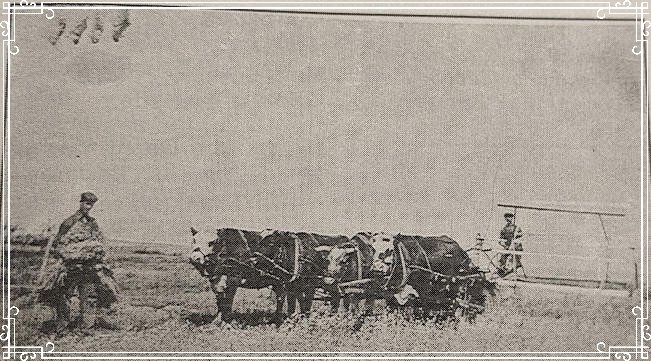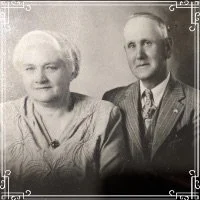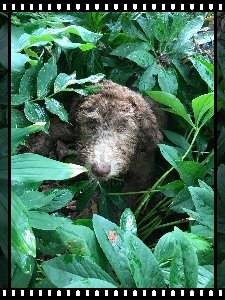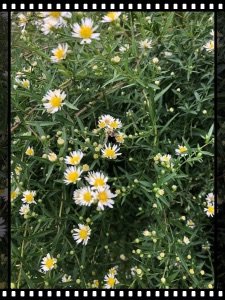Diary of a pioneer Pt.2
Diary of a Saskatchewan Pioneer Part 2 – Domesticity, by Al Slavin
June 1905, 2 years after James arrived in Canada:
Went to Saskatoon [60 km!] to meet the family, taking wagon and oxen; my neighbour, Wallace Harvey, taking his horses and wagon. I brought back 22 boxes of Settlers’ Effects, Wallace brought back the family, who stayed at the Buck shack. A small tent was used on the homestead of my father while we built a sod house, 12’ X 22’ with a shanty roof, the high wall sagging then had to be rebuilt. My oxen were improving by then — also the driver — so we were able to plow fairly even sods, from slough land and slough [wetlands], which were cut in slabs with an axe, and built block style. A sod stable and hen house were then built.
Rabbits supplied considerable of our meat, wild duck eggs were plentiful, we bought dried apples by the 20 lb box, figs by 50 lb sack, tea 3-lb tin $1.00, coffee the same. Also slabs of salt pork, curing our own in the following years. On one occasion, we went to the bush at Dana [to cut wood] about 20 miles (a 7-hour journey with the oxen). After cutting our load, we came about 6 miles on the home road, then camped under the wagon for the night. We tethered one ox, Jerry, on a 50-foot tethering chain. But Joe, the loose one, was missing at daybreak. After looking around I decided he had gone home and walked after him (about 12 miles). He was found near the buildings with my cow. I took him back to the load, riding him part way and we all got home by evening, 36 miles for Joe. That is one incident of many.
I worked out [away from my homestead] that fall, driving a team of oxen for a Mr. Carter, 6 miles from home. My brother had stacked my 5 acres of oat sheaves with a neighbour’s two stacks. They were fire-guarded on three sides, but open in the north. A prairie fire came from the north and burnt all the stacks. Having depended on the sale of some oats to buy seed wheat, we had to go to the government for a loan to purchase seed and feed in the spring of 1906. A neighbour, W. Dave, sowed my 20 acres of breaking, but owing to poor preparation, the seed did not properly cover with soil. The birds in their thousands followed in the drill runs and ate considerable of the seed, so that I had to re-sow flax. We ended with 13 bushels to the acre: 6 flax, 7 wheat. Hauled the fax to Dundurn and sold it for 62 cents per bushel. These are a few of the incidents getting started on a homestead. My youngest sister attended the Athens School, built on N.E. corner of Section 10-35.1, which was later moved into Elstow when the railway was built in. (My brother was working the railway gang S.E. of Elstow on Grand Trunk (C.N.R.), my second sister working in Saskatoon.)
Church services were started about the time I arrived. There were several Methodists in Elstow. I attended some of their services when invited. However, when Archdeacon Lloyd brought out 60 Church of England (Anglican) students in 1907, one of them, J. Whiting, was appointed to Elstow. From then I was active in my own church. Other activities started in 1909 when we organized our Telephone Company. Then followed our Agricultural Society in 1910; in which I was active member until it moved to Saskatoon in 1948. I still enjoy helping at the Fairs. I was active in the Co-op Elevator Company in 1915, then Co-op store at Elstow. I am now secretary of the Saskatoon Wheat Pool Committee.
After service at our house on some Sundays, I accompanied Jess Whiting in his two-wheel cart drawn by Victor, his Piebald pony, across the prairie to Langstaft's home at Cloonsay, for a service. Back home by evening or in the morning.
But can we have a garden? by Sue Aylesworth
I’m sitting here in my garden; it’s near the end of the growing season and I’m thinking about what will happen should we move into a condo -- and into cohousing. Can we have a kitchen garden, and if so, how will that happen? Right now, I can step out of my back door and right into the garden. I’ll miss that. I enjoy just sitting here surveying the fruits of my labour (pun intended). We’ve had a good run with cucumbers and grape tomatoes this year. But we also learned that the squirrels like those little tomatoes too. Our newest planting bed backs up to a fence in our yard. That fence is the super highway for the local squirrels. And grape tomatoes are just the right size for a squirrel; doesn’t slow them down a bit.
A few years ago, we started planting native plants in support of the butterflies and other pollinators. It’s such an easy thing to do and we’ve enjoyed the results. There are days when our small city back yard resembles a Disney movie. And, as an added bonus, the birds deposit seeds for even more plants and trees.
I hope we’ll have a kitchen garden in cohousing, where we can step outside to gather the salad for dinner and maybe a bunch of flowers for the table.
I Worried — shared by Arthur Herold
I worried a lot. Will the garden grow, will the rivers
flow in the right direction, will the earth turn
as it was taught, and if not how shall
I correct it?
Was I right, was I wrong, will I be forgiven,
can I do better?
Will I ever be able to sing, even the sparrows
can do it and I am, well,
hopeless.
Is my eyesight fading or am I just imagining it,
am I going to get rheumatism,
lockjaw, dementia?
Finally, I saw that worrying had come to nothing.
And gave it up. And took my old body
and went out into the morning,
and sang.
-written by Mary Oliver
Introducing Sunil Kittur
Sunil was born in India near Bangalore. His family moved to the U.K. when he was 2 years old. His father was an electronics engineer and his mother was a tax inspector working for the HMRC (Revenue and Customs). Dad was an atheist, but mom was a Hindu; she would make him do the religious ceremonies but the spiritual part was missing for him. He says he has more of an affinity to Buddhism, if anything. He has a brother 7 years younger; but since he moved out of the family home at 18, he is not really close with him. His father died in 2015 and his younger brother moved in with his mother to take care of her, which is a relief for him.
He grew up in South London, which had some very rough parts. It had neo-modern concrete blocks with underpasses; they filmed parts of A Clockwork Orange there. By the time he was 14, his father got a new job and they moved to a commuter town in Hertfordshire; halfway between Cambridge and London. He was in his senior year when Jamie Oliver joined his high school.
Sunil was really into reading sci-fi and electronics. This was the late 70’s and he saved up to buy a build-your-own computer kit brought out by Acorn (an English leading-edge computer technology company). A few years later he really got into music; he wanted to be a drummer but his mother said no way would he have a drum kit in the house, so he learned bass guitar and played in a few local bands. His crowd were into anarcho-punk – punk rock that promotes anarchism. From age 16-18 he was active in the Campaign for Nuclear Disarmament.
He went to University College London to study computer science. He loved being in the centre of London and the whole music scene there. Aside from anarchist punk he was also into goth and psychedelic music. He was in and out of a lot of bands and seeing lots of other bands. A friend of a friend was in a band called The Stupids, which was John Peel’s favourite band. (John Peel was a very influential music DJ and radio presenter). The band was splitting up and, while re-forming, needed a bassist and Sunil stepped in. They had a session with John Peel at Maida Vale studios to record 4 songs and those were played on rotation on his radio show. It was a one-off for Sunil as the former bassist then wanted back in and Sunil graciously dropped out. They went on to do a couple of albums and European tours. Sunil’s has some “what-if” thoughts for that; it would have been nice to have had the experience, but he’s not sure he regrets it.
Sunil graduated university and saw a notice board with a job posting for a Unix kernel engineer at a company with headquarters in Santa Cruz, California. He got it. The company was in central London, but moved to Watford (a desperate small town) so after a month or so he asked if he could do a secondment in Santa Cruz, which they agreed to. This was 1989. His third day there he experienced an earthquake -- 7.2 on the Richter scale with the epicentre about 10 km away. He saw the ground move as if a wave on the ocean. Windows were shattering, brick buildings collapsing, everyone screaming. Welcome to California.
The company was like a big adult daycare centre. It had a whole Silicon Valley vibe to it. There was a central courtyard with trees and a hot tub and sauna, which everyone had 24/7 access to. One day, Sun Microsystems had a delegation of executives there to sign contracts. Some guys had finished a session in the hot tub and were chasing each other naked around the building and streaming past these executives. The next day everyone got an email to please bear in mind that this was a workplace and please try to remain clothed, at least during business hours and if there were outside guests.
They offered him full-time employment, but he had to go back to his old office in England to await the proper visa. He met Therese there. He got her attention when, at a birthday party in a restaurant, his hair caught fire (you’ll have to ask him about that one!). He did go back to Santa Cruz and they conducted a long-distance relationship. They decided to get together and they didn’t want to live in the U.S. permanently, so he returned home and they got married.
He got a job in Manchester and Therese did her PhD in the Philosophy of Education at the University of Manchester. Another job opportunity came up at Acorn (the company that made his first computer kit). They wanted an operating system researcher in their headquarters; this was a very rare thing – to get to do research with a commercial focus, so he jumped at it. They moved to Cambridge and Therese got pregnant. He worked there 4 years and says it is the most interesting thing he’s ever done. Unfortunately, Acorn was at the forefront of computing but failed to take the lead -- their mission statement should have been “Clutching defeat from the jaws of Victory”. He saw the writing on the wall and sent a resume to QNX in Kanata near Ottawa and got a job with them 6 months later. He didn’t want to move to Canada, as his daughter was 3 and son 9 months at the time, so they let him work remotely from home.
In 2001 they took a secondment through Therese’s work to the south of France. While there, his son developed a very severe autoimmune disease and was in and out of hospital, so Therese left her job to be with him. They moved back to England because of it and decided they wanted to move to Cornwall in a tiny village on the coast. This was good for the children while they were small; it had a very family atmosphere. However, it was not so good for teenagers with not enough to do and lots of trouble to get into.
Around that time, Blackberry bought QNX and wouldn’t allow remote work. They had to move to Canada or leave, so in 2011 they moved to Kanata. They love travelling around and being in new places and the best way to do that is to immerse yourself in a place with a job and kids in school. The kids were 14 and 12 and this would be their last opportunity to do it. He thought that it was a good move for his mixed-race children as well, as their Cornish village had only one other non-white family.
Sunil is interested in all kinds of things, until he isn’t anymore. He is the sort of person who needs to get over inertia at first, but then becomes completely obsessed with something. He still plays bass and has been in a variety of indie bands here. He has been learning tabla for a year now, and a bit of acoustic and electric guitar. He used to do Aikido and loved it. He draws and paints (with a surrealist focus), but hasn’t done that for a while.
Sunil is 55 and Therese is 58. They found KCC on the internet. They want to sow the seeds for an established community where you can grow old with real friends and a real support network. But for now, they are enjoying the opportunity to meet people with (probably) a similar kind of mindset, but with vastly different kinds of experiences.






